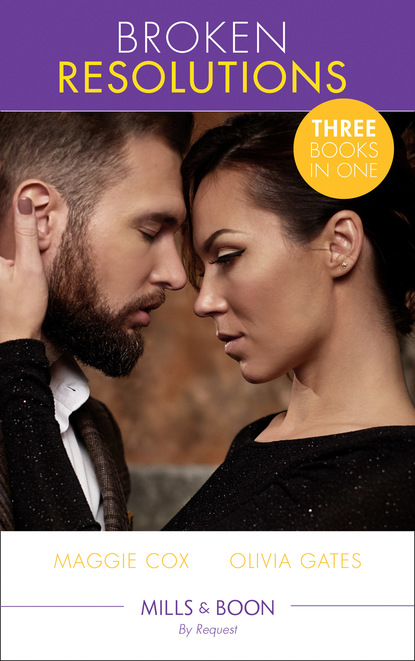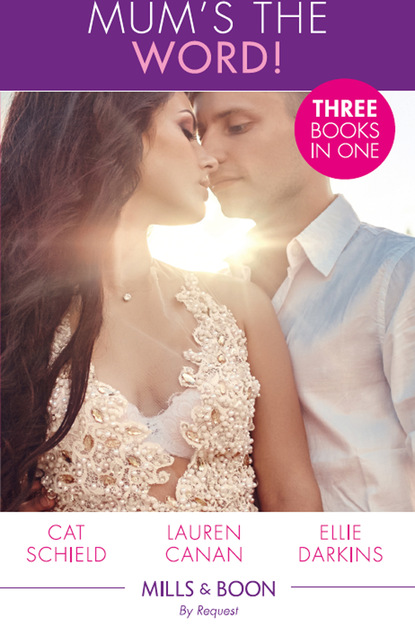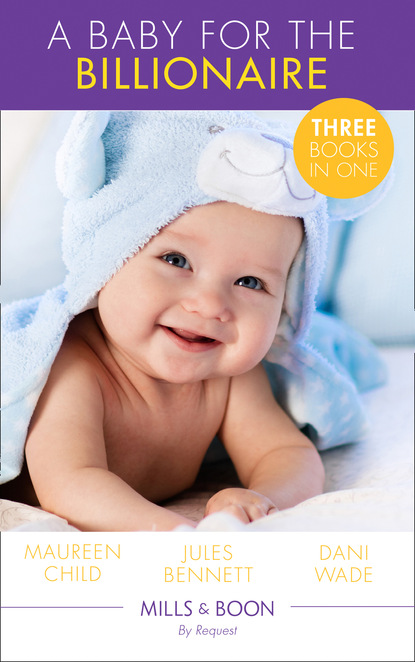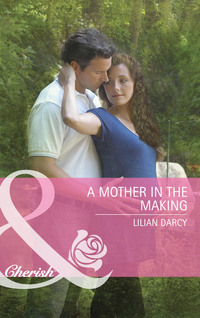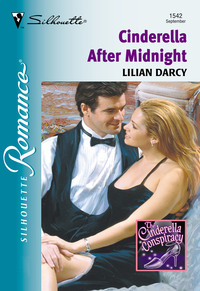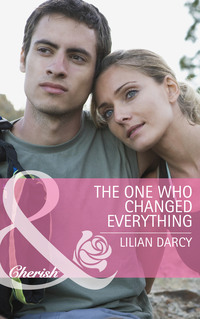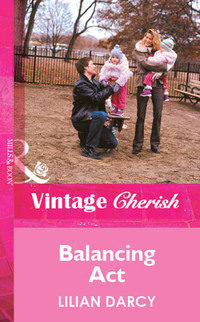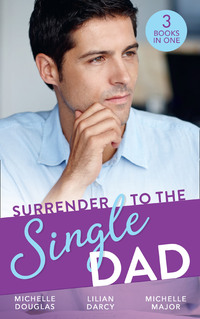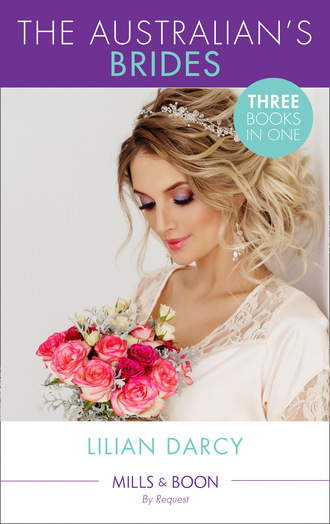
Полная версия
The Australians' Brides

About the Author
Bestselling romance author LILIAN DARCY has written over seventy novels. She currently lives in Australia’s capital city, Canberra, with her historian husband and their four children. When she is not writing or supporting her children’s varied interests, Lilian likes to quilt, garden or cook. She also loves winter sports and travel.
Lilian’s career highlights include numerous appearances on the Waldenbooks romance bestsellers list, three nominations in the Romance Writers of America’s prestigious RITA® Award, and translation into twenty different languages. Find out more about Lilian and her books or contact her at www.liliandarcy.com
The Australians’ Brides
The Runaway and
the Cattleman
Princess in Disguise
Outback Baby
Lilian Darcy

www.millsandboon.co.uk
MILLS & BOON
Before you start reading, why not sign up?
Thank you for downloading this Mills & Boon book. If you want to hear about exclusive discounts, special offers and competitions, sign up to our email newsletter today!
SIGN ME UP!
Or simply visit
signup.millsandboon.co.uk
Mills & Boon emails are completely free to receive and you can unsubscribe at any time via the link in any email we send you.
The Runaway and
the Cattleman
Lilian Darcy
Chapter One
He looked like a cowboy, against the backdrop of rust-red outback dirt and endless blue sky.
Or to be more accurate, like every woman’s fantasy of a cowboy.
An ancient, broad-brimmed hat tilted low over his forehead. It shaded his face so that the color of his eyes was impossible to read, but one look at his profile would tell a red-blooded woman all she needed to know. Strong jaw, firm mouth, an intensity in the way he watched the world … even when he looked as if he wasn’t really seeing it.
His body was even stronger than his jaw, but he wasn’t the type who needed to wear his T-shirts too tight to emphasize washboard abs and bulging biceps. The muscles were just there, hard and motionless beneath faded denim and stretch cotton. He’d learned to conserve his energy for when he really needed it—for a long day of boundary riding, cattle branding or herding his animals to fresh pasture. Right now, since he didn’t need it, he leaned his tanned forearms on the wooden rail in front of him, the way he would have leaned them on a stockyard gate.
Yes, any woman who’d picked him as a cowboy would have been close. He was a cattleman, an Australian outback farmer, owner of his own huge spread of acreage. He was no one’s wage slave, but answered only to his land, his animals and his family.
Nine out of ten women took a good look at him as they walked past. Eight out of ten were impressed with what they saw, and would have liked to find out more. Just what color were those eyes? Did he have tan lines around those solid upper arms? What did he have to say for himself? Did he like dressy blondes or down-to-earth brunettes? Was he available? Was he as good as he looked?
But if the cattleman noticed any of the female attention he was getting, it didn’t show. You would have said that Callan Woods’s thoughts were at least two hundred miles away, and you wouldn’t have been wrong.
“Look at him, Brant! What are we going to do?”
Branton Smith felt helpless at his friend Dusty Tanner’s question. Like Callan himself, they both lived most of their waking hours out of doors. They worked with their hands. When they struck trouble, it was something physical—drought or flood or fire or an injured beast—and the solution to it was physical, also.
They just worked harder. They climbed on a horse and herded cattle or sheep to higher ground. They got out of bed two hours earlier in the morning and fed their animals by hand, dropping feed bales off the back of a truck until their hands were callused like leather and every muscle burned. They were big, strong, capable men, and they had brains. They looked for active, assertive answers.
But what could they do about Callan?
“Just be there for him, I guess,” Brant said in answer to Dusty’s question.
He wasn’t surprised at Dusty’s bark of derisory laughter. “You sound like an advice column in a teenage magazine, mate!”
True.
Had to be cruddy advice, too, because they’d both “been there” for Callan since his wife Liz’s death four years ago, and he only seemed to have folded in on himself even more this year.
He stood, as they did, with his forearms propped on the rail that kept spectators back from the racetrack, while around him swirled the color and noise of Australia’s best-known outback racing carnival. Judging by Callan’s thousand-yard stare, his slumped shoulders, his tight mouth and his silence, however, he barely knew that he was here.
The three men had been best mates for years, since attending Cliffside school in Sydney more than seventeen years ago. Then, they had been three strong, shy outback boys, boarding away from home for the first time, in the company of the sons of stockbrokers and car dealers and property tycoons.
Now they owned racehorses together, five sleek beautiful animals at the present time, of which two were racing at today’s carnival. Three of their horses were trained at a place near Brant’s extensive sheep-farming property west of the Snowy Mountains, while the two running today were with a trainer in Queensland, near Dusty.
As a hobby, the racing syndicate just about paid its way. As an exercise in mateship, it was solid gold.
Their spirited two-year-old mare Surprise Bouquet had put in a reasonable performance in her maiden event this morning. She’d placed fifth in a field of sixteen after a poor jump from the barrier, and she should do better next time around. Saltbush Bachelor was the horse they had real hopes for today.
Callan, Brant and Dusty couldn’t meet face-to-face all that often, given the distance between their properties, but this race carnival was a tradition they kept to whenever they could. Callan had missed a couple of years when Liz had been ill. She’d died at around this time of year. A couple of weeks along in the calendar—end of September. Maybe that was part of Callan’s problem. The Birdsville Races and September and Liz’s death were all wrapped up together in his heart.
“He’s thirty-three,” Dusty muttered. “We can’t let him go on thinking his life is over, Brant.”
Standing beside his two mates, Callan wasn’t thinking that.
Not exactly.
But yeah. He knew Brant and Dusty were concerned about him. They weren’t all that subtle on the issue. Those frequent anxious looks, the muttered comments he didn’t always hear but could guess the gist of, the over-hearty suggestions about going for a beer, the occasional comment about a woman—nothing too crude, just “nice legs” and that kind of thing—after which they’d both nudge him for an agreement, which he would dutifully give.
Yes, she had nice legs, the blonde or the brunette or the farmer’s daughter with her hair hidden beneath her hat.
Brant and Dusty both thought it was time he moved on, found a new mother for his boys.
Callan had thought so, too, once.
Three years ago, to be exact, here at this same annual racing carnival.
To him, it felt like yesterday.
He could still remember the panic, the loneliness, the physical hunger, the ache for his own loss and the even harder ache for what his boys would miss without a mother, after that first endless year without Liz.
But, sheesh! What the hell had he been thinking that day? Had he really thought that a party-going, city-bred twentysomething with “nice legs,” carrying a glass of champagne in one hand and in the other a race guide she wasn’t interested in, could possess the slightest power to help him move on?
There had been a nightmarish wrongness about that woman’s body. The freckles across her nose weren’t Liz’s freckles. Her hair wasn’t Liz’s shade of blonde. Her curves weren’t right, or her voice. He’d been looking for all the wrong things, and he hadn’t even found those.
“They’re in the barrier,” Brant reported, his voice rising to cut across Callan’s thoughts. “He looked lively but not too wound up.”
“And Garrett is hungry for this win,” Dusty added. “He’ll ride him just right.”
Both men had binoculars pressed to their eyes, now. They didn’t want to miss a second of the race, or of their horse’s ride. They wanted Callan to care that Saltbush Bachelor was running with a good period of training and some successful starts behind him, and actually had a shot at a win.
The silk shirts of the jockeys shimmered with color in the bright sun, the way the desert air shimmered on the horizon. The nearby airfield had light planes lined up like minivans in a shopping mall’s parking garage, and the population of the tiny outback town had temporarily swelled from a few hundred to several thousand. Callan could smell beer and barbecued sausages, sunscreen and horse feed and dust.
He roused himself enough to answer his two friends. “Yeah, Mick Garrett’s a good jockey.” But he didn’t lift his own binoculars and barely noticed the anticipation that knotted their bodies and their voices as the race got underway.
Instead he thought about his boys back on Arakeela Creek with their grandmother, thought about what he’d need to do with the cattle next week when he was home, thought again about three years ago here in Birdsville and that disaster of a nice-legged woman who could never in a million years have looked—or felt—or sounded—enough like Liz.
He thought about the other woman, too, a few months later—a blond and freckled Scandinavian backpacker whom he’d permitted to camp down by the Arakeela Gorge water hole, and who had been happy to make all the moves in what had soon turned out to be a limp disaster of a one-night stand.
Lord, he hated remembering! He’d been so crazed with grief and loneliness, but how could he have thought that hooking up with some stranger would do anything to heal him, let alone anything to provide him or his boys with a better future?
Watching Callan’s mental distance and his thinned mouth, Brant and Dusty looked at each other again. Didn’t need to speak about it, but spoke anyway.
“Does he even know it’s started?” Dusty muttered.
“Knows,” Brant theorized. “Doesn’t care.”
“If Salty wins—”
“Won’t make a blind bit of difference to him. Hell, Dusty, what are we going to do? Being there is just bull. You’re right. We both know it. He needs action.”
“Action? We’re doing everything we can. When he wanted to pull out of our racehorse syndicate, we basically told him he couldn’t.”
“And his mother talked him round on that, too.”
The race wheeled around the far curve of the track and the jockeys’ colors blurred. From this angle, it was impossible to see how Saltbush Bachelor was running. As long as he wasn’t hemmed in at the rail. As long as Garrett didn’t leave his run too late.
Beside Brant, two would-be Paris Hiltons were screaming for the horse they wrongly thought they’d bet on. Van Der Kamp wasn’t running until the next race, but neither Brant, Dusty nor Callan troubled to give the two overexcited young women this information.
“Kerry’s worried,” Brant went on, still talking about Callan’s mother. “She phoned me last week and asked us to look out for him this weekend.”
“Like we wouldn’t anyway.”
The momentum of the race picked up as the horses came around into the home straight. The Paris Hilton girls had realized their mistake over Van Der Kamp and were cheering for the correct horse, now—Salty himself.
“He’s going to do it!” Brant yelled. “He’s up there. It’s going to be close. Can you see, Dusty? Callan?”
Callan didn’t answer.
The horses thundered past, their legs a blur of pistonlike movements, their jockeys’ colors once more tangled together. Just twenty meters to go, then ten.
“He’s there, he’s … no, he’s not going to win, but second. He’s—hell, he’s losing ground, but he’s going to get—” Brant stopped.
Second place? It was too close to call. They’d have to wait for the official result. Brant listened to the distorted sound of the PA system for several seconds and managed to catch winner and place-getters’ names. Even allowing for the distortion, none of them sounded remotely like Saltbush Bachelor. Their horse had lost out for third place by a nose.
“So much for omens,” said one of the Hilton types to the other.
“Guess we’re not scoring ourselves an outback bachelor today,” the other one replied.
Beside them, Callan didn’t even react—despite their nice legs—and Brant and Dusty could only look at each other helplessly once again.
“Talk to your sister, Brant,” Dusty suggested. A small, irritating bush fly buzzed near his lips. Like most outback-bred people, he’d learned not to open his mouth too wide when he spoke, which was an advantage in confidential conversation. “Maybe this needs a woman’s touch. Nuala has a good head on her shoulders.”
“A good head full of crazy ideas,” Brant said.
“Maybe a crazy idea is just what we need.”
“Yeah, because the plain, ordinary ones haven’t worked, have they? Okay, I’ll talk to her about it when I get back. But I’m warning you, it might not be an idea we want to hear.”
Dusty got a stubborn look on his face. “If there’s a chance of it helping Callan, mate, at this point I’ll listen to anything.”
Chapter Two
“So we’re going to pay Nuala back how, for coming up with this dream scheme?” Dusty drawled to Brant, almost six months later.
The Birdsville Races had been held on the first weekend in September. This was a Friday night in late February. Their horses had had a couple of promising wins during the spring season. Brant’s property had received higher than average rain, while Dusty’s had sweltered in the intense Queensland summer heat. Kerry Woods had talked again to both men about how worried she was about Callan.
“You were the one who said you didn’t care if it was crazy, as long as there was a chance it might help Callan, you’d do it,” Brant reminded him, a little defensive on his sister’s behalf, even though he’d had a few payback fantasies himself over the past couple of weeks, since the appearance of the February issue of Today’s Woman magazine.
“And I’m here, aren’t I?” Dusty retorted. “I did do it. I had my photo in that damned magazine. I had to list my hobbies and my background, and—” he hooked his fingers in the air to show the quote marks coming up “—what I’m looking for in a woman and why I believe love can last. And then the magazine didn’t use a quarter of what I’d said.”
“You did a better job with all those questions than I did,” Brant said.
Dusty shrugged and grinned. “I was more honest.”
“Yeah, mate, don’t you have any self-protective instincts?”
“Plenty of ’em. I’m just not a very good liar. Does your sister really think Callan’s going to find what he’s looking for this way?”
Both men looked around the room. It was just after six in the evening, and the air-conditioning in this elegant waterfront venue battled against Sydney’s lingering summer heat. The metropolitan beaches would be crowded with sleek, tanned bodies and sandy children. On the tangled city streets, traffic and exhaust fumes would still be thick, mingled with the blasts of restaurant smells evoking the cuisine of many nations. This was an attractive setting for a cocktail party, however, with its views over Darling Harbour, including a distant glimpse of the Harbour Bridge beyond the restored and remodeled shipping piers.
It was light-years away from the varied landscapes around Brant’s, Dusty’s and Callan’s homes.
There had to be around fifty people in the room, Brant decided. They appeared to consist of twenty single outback men and twenty single urban women, as well as some journalists and photographers from the magazine and a handful of catering staff who were gliding around with drink trays and fiddly little morsels of fashionable food that looked way too scary to eat.
“Not find what he’s looking for, find out what he’s looking for, according to Nuala,” he said to Dusty in clarification.
“Nuala, who has recently announced her engagement to a man she’s known since she was, what, three?” Dusty pointed out. “Oh, yeah, she’s a real expert on this relationship stuff.”
“Getting Nuala’s input on all this was your idea, I seem to recall. And she hasn’t been going out with Chris since she was three,” Brant said, in defense of his baby sister’s credentials in the field. “She wouldn’t look at him after she left school. She went to Europe for three years.”
“She had boyfriends then?”
“Their names have been permanently blacked out of the Nuala Jane Smith archival records, she says, but, yeah, she had a few.”
“So she really thinks—?”
“You want me to quote her?” Brant ticked his sister’s arguments off on his fingers. “This will get Callan to focus on what he wants and what’s missing from his life. It’ll remind him that there are still some decent women in the world even without Liz in it. It’ll show him he’s not the only one whose heart is in—”
He stopped. Pieces he was going to say, but suddenly, they were no longer alone.
“Hi! Who do we have here? Dustin, right?” The overenthusiastic American woman discreetly consulted some notes on a clipboard, while a photographic flash went off in a man’s hands, right next to her. Magazine people, both of them.
The flash made Dusty blink. If Dusty had been one of their own racehorses, Brant thought, the man would have shied and stepped a big hoof on the American’s foot, including her spike heel. He would have broken several of her bones. “Call me Dusty,” he said.
“Dusty ….” The American beamed artificially. Her eyelids fluttered and she barely looked in his direction. She had sleek hair, a wide mouth and a distracted manner. Nice legs, too, Brant saw as he stepped back out of range. Owning racehorses gave a man a deep appreciation of good female legs. Dusty gave them an interested glance, also. “Now, you’re here to meet Mandy tonight, Dusty, and here she is!” the American said.
Ta-da!
Mandy stepped forward. She was around five foot four and her legs were pretty ordinary, but she had dark eyes and an eager smile. She was also totally thrilled with herself for correctly matching Dusty’s personal details to his photograph and winning herself a place at the party tonight.
Dusty looked a little bewildered at her attitude, but when he answered the question she asked him and she listened with those big eyes fixed so intently on his face … Yeah, Brant thought he would probably have felt the ego stroke, too. It was nice when a woman was genuinely interested. He went in search of a drink, wondering with a faint stir of curiosity which of the as-yet-unpaired women in the room had been earmarked for him.
Passing Callan, he couldn’t help but notice that his friend, the object of this whole outlandish exercise, was mentally miles away.
“Why am I here?” Jacinda Beale muttered to herself.
As always, she had reacted to this dressed-up, extravagant, city cocktail party like an animal caught in a searchlight. She didn’t know a soul. She hadn’t yet been introduced to the man she was supposed to meet.
The woman who was supposed to do the introducing—and who had introduced herself to Jacinda as Shay-from-the-magazine—flitted around looking almost as stressed out as most of the guests, many of whom were clearly too shy to mingle easily.
Why are you here, Jac?
Well, go ahead and pick an option, replied the cynical and panicky running commentary in Jacinda’s brain. You’re a scriptwriter, after all. Choosing between different character motivations is one of the skills of your trade.
There were several such options to choose from, some of which were more honest than others.
Because I gave in to an insane impulse and thought this might be fun … or, failing that, good for me.
Because Today’s Woman magazine is running a series of stories called “Wanted: Outback Wives,” and I happened to a) guess correctly which Outback Wife-hunter’s description of himself matched with which Outback Wife-hunter photo—it wasn’t that hard!—and b) write a sufficiently appealing and correctly spelled letter outlining in three hundred words or less why I should get to meet him.
Yes, believe it or not, an invitation to this cocktail party was meant to be a kind of prize.
Because I’m desperate, and I’ll open any door that looks like it has a handle.
Because I’m a writer, so it’s research.
That last one scared her, adding to the already powerful panicky feeling. Writers could claim that pretty much anything was research, and in the past for Jacinda, the claim had always been true. In the name of research, she’d tried on expensive jewellery, combed through a stranger’s trash can, taken a ride on a seriously terrifying roller coaster, eaten in two or three of America’s most famous restaurants … The list went on.
But was she really a writer anymore?
Heartbreak Hotel’s head scriptwriter, Elaine Hutchison, still thought that she was.
“You’re blocked, Jac,” she’d said six weeks ago. “You have good reasons to be blocked, and you need a break. Take that gorgeous daughter of yours, cross an ocean, and don’t come home for a month. By then, you’ll be raring to go and I can give you Reece and Naomi’s storyline because you are the only one I trust to make their dialogue remotely believable.”
“Which ocean?” Jac had asked, because her initiative had also evaporated, along with her TV soap opera dialogue-writing skills.
“Any ocean, honey. Just make it a big one. Know what I’m saying? Know why I’m saying it?”
Elaine hadn’t mentioned any names but, yes, Jac had known what she was saying, and why. She should put some distance between herself and Kurt until she was stronger, better equipped to move forward. She should recognize that despite Elaine’s genuine friendship, she had divided loyalties because Kurt had the power to scuttle Elaine’s own career as well as Jacinda’s.
And the Pacific Ocean was the biggest ocean around—it conveniently washed ashore in California, too—so here she was on the far side of it, in Australia, at the bottom of the world, at the bottom of a glass, at a cocktail party she wasn’t enjoying any better than she’d enjoyed all those dozens and dozens of cocktail parties with Kurt.
Even when she and Kurt had been in love.
Thud, went her heart.
Yes, she had been naive enough to love him once.
But their marriage had given her Carly, her precious daughter, so the news wasn’t all bad.
“Jacinda?” said a woman’s voice, in an American accent that matched Jac’s own.
She turned to the energetic chestnut-haired magazine editor who’d greeted her on arrival. “Shay, hi ….”
Introduction time.
There was a man hovering at Shay-from-the-magazine’s elbow. Better looking than in his magazine photo, he appeared far less comfortable, however. The photo had shown him in his native element, with one long, jeans-clad leg braced against a rust-red rock and his dusty felt hat silhouetted against a sky the color of tinted contact lenses. He’d had his fingers laced in the fur of a big, tongue-lolling cattle dog—also rust-red—and a smile that narrowed his brim-shaded eyes so much you couldn’t even see them.


